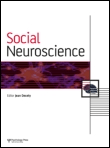
JOURNAL OF PSYCHOPHYSIOLOGY
Scope & Guideline
Decoding the Physiological Foundations of Psychological Processes
Introduction
Aims and Scopes
- Electrophysiological Measurement Techniques:
The journal emphasizes the use of various electrophysiological techniques, such as EEG, ERP, and EMG, to investigate the neural correlates of psychological processes. This includes studies that leverage these techniques to explore cognitive functions, emotional processing, and behavioral responses. - Interdisciplinary Research:
The journal encourages interdisciplinary approaches that integrate neuroscience, psychology, and physiology. Research that bridges these fields contributes to a more comprehensive understanding of human behavior and mental processes. - Clinical Applications:
There is a consistent focus on the clinical implications of psychophysiological research, particularly how findings can inform treatment strategies for mental health conditions. This includes studies on the effects of interventions like neurofeedback and transcranial stimulation. - Developmental and Lifespan Perspectives:
The journal publishes research that considers developmental trajectories and lifespan changes in psychophysiological responses, exploring how these factors influence cognitive and emotional functioning across different age groups. - Mind-Body Interactions:
Research on the interplay between physiological states and psychological well-being is a core area of focus. This includes investigations into how stress, emotion regulation, and cognitive load affect physiological responses.
Trending and Emerging
- Integration of Technology in Psychophysiology:
There is a growing trend in incorporating advanced technologies such as machine learning, mobile EEG, and virtual reality into psychophysiological research. This integration allows for more nuanced data collection and analysis, enhancing the understanding of complex behaviors. - Focus on Mental Health Interventions:
Recent publications increasingly emphasize the application of psychophysiological findings to mental health interventions. This includes studies exploring the efficacy of neurofeedback, mindfulness, and biofeedback techniques in clinical populations. - Emphasis on Individual Differences:
Research that investigates individual differences in psychophysiological responses—such as how personality traits, genetic factors, or life experiences influence these responses—is gaining traction. This focus supports personalized approaches to mental health treatment. - Exploration of Emotion Regulation Mechanisms:
There is an emerging interest in understanding the psychophysiological mechanisms underlying emotion regulation. Studies are increasingly examining how physiological responses can be modulated through various cognitive and behavioral strategies. - Interdisciplinary Collaboration:
The journal is seeing an increase in interdisciplinary research that combines insights from psychology, neuroscience, and behavioral economics to address complex questions about human behavior, decision-making, and emotional processing.
Declining or Waning
- Basic Mechanistic Studies:
There has been a noticeable decline in studies focused solely on basic mechanistic investigations of psychophysiological processes without practical applications or connections to psychological outcomes. Researchers are increasingly prioritizing studies with direct implications for clinical practice. - Overly Specialized Topics:
Research that is highly specialized or niche, such as studies focusing on specific, less common psychophysiological measures without broader applicability, is becoming less frequent. The journal seems to favor more generalizable findings that can apply across various contexts. - Single-Method Studies:
There is a waning interest in studies that utilize only one methodological approach (e.g., solely EEG without integrating other methods). The trend is shifting towards multimodal approaches that combine different techniques for a more holistic view of psychophysiological phenomena. - Descriptive Studies:
Descriptive studies that merely report correlational findings without a strong theoretical framework or clear implications for understanding psychophysiological processes are declining. The journal increasingly favors research that provides deeper insights or interventions.
Similar Journals

NEUROPSYCHOBIOLOGY
Advancing Knowledge: Bridging Gaps in Neuropsychological ResearchNEUROPSYCHOBIOLOGY, published by KARGER, is a leading academic journal that has been at the forefront of exploring the intricate relationships between neuroscience and psychological processes since its inception in 1975. With both an ISSN of 0302-282X and an E-ISSN of 1423-0224, the journal is renowned for its rigorous peer-reviewed articles and significant contributions to the fields of Biological Psychiatry, Neuropsychology, and Physiological Psychology. Its impact is reflected in its esteemed Scopus rankings, standing out in the 92nd and 81st percentiles in their respective categories. With a commitment to advancing understanding in mental health and neurological science, NEUROPSYCHOBIOLOGY is classified in the Q3 and Q1 quartiles, making it a vital resource for researchers, clinicians, and students alike. Based in Switzerland, the journal embraces a holistic approach to psychological research, bridging gaps between theoretical frameworks and practical applications, thus promoting impactful advancements in the understanding of the human mind.
Explore the latest findings and theories with NEUROPSYCHOBIOLOGY, where your work can contribute to the evolving landscape of neuropsychological studies.

Social Neuroscience
Advancing Insights at the Intersection of Brain and SocietySocial Neuroscience is a premier academic journal dedicated to advancing the interdisciplinary field that lies at the intersection of social psychology, behavioral neuroscience, and developmental studies. Published by ROUTLEDGE JOURNALS, TAYLOR & FRANCIS LTD, this journal has made significant strides since its establishment in 2006, with a convergence period extending to 2024. It regularly features innovative research articles that explore the neural basis of social behaviors and the impact of social interactions on brain function. Holding esteemed rankings in Scopus, including Q2 status in both Development and Social Psychology categories, it appeals to a broad array of scholars and practitioners keen on understanding human behavior through a neuroscientific lens. The journal's commitment to fostering critical discussions and publishing impactful research makes it an essential resource for professionals, researchers, and students alike who seek to deepen their understanding of the complex interplay between social processes and neural mechanisms.

COGNITION & EMOTION
Pioneering Research at the Intersection of Thought and EmotionCOGNITION & EMOTION is a leading academic journal published by Routledge Journals, Taylor & Francis Ltd, focusing on the dynamic interactions between cognitive processes and emotional responses. Established in 1987, this esteemed journal has made significant contributions to the fields of Arts and Humanities, Developmental and Educational Psychology, and Experimental and Cognitive Psychology, consistently ranking in the top quartile (Q1) across various categories. Housed in the United Kingdom, COGNITION & EMOTION boasts a remarkable impact factor, underscoring its influence and importance in advancing psychological research and theory. While this journal does not offer open access, it remains a vital resource for scholars, professionals, and students seeking to deepen their understanding of emotional and cognitive phenomena. With a commitment to rigorous peer-reviewed research and innovative insights, COGNITION & EMOTION is essential for anyone aiming to stay at the forefront of psychological studies.

BRAIN AND COGNITION
Exploring the Nexus of Mind and BrainBRAIN AND COGNITION, published by Academic Press Inc Elsevier Science, stands as a vital resource for researchers and practitioners in the realms of cognitive neuroscience and psychology. Established in 1982, the journal has continuously evolved, showcasing cutting-edge research that bridges the understanding of brain functions and cognitive processes up to 2024. With an impressive impact factor reflecting its commitment to high-quality scholarship, the journal currently holds a prestigious Q1 ranking in Arts and Humanities (miscellaneous) and notable Q2 rankings in various psychology fields, including Cognitive Neuroscience, Developmental and Educational Psychology, Experimental and Cognitive Psychology, and Neuropsychology. This multidisciplinary journal cultivates a rich academic dialogue, offering valuable insights to professionals, researchers, and students alike. Although it does not offer open access, its robust indexing in Scopus and consistent contribution to important discussions in cognitive research define its critical role in advancing knowledge and innovation in the cognitive sciences.

INTERNATIONAL JOURNAL OF PSYCHOPHYSIOLOGY
Exploring the Nexus of Mind and BodyInternational Journal of Psychophysiology, published by Elsevier, stands as a leading academic platform in the disciplines of psychophysiology, neuropsychology, and neuroscience, primarily based in the Netherlands. With an ISSN of 0167-8760 and an E-ISSN of 1872-7697, this journal has been a significant contributor to scientific discourse since its inception in 1983. Recognized for its impact, it holds a Q2 category in multiple fields, including Neuropsychology and Physiological Psychology, Neuroscience, and Medical Physiology, showcasing its relevance and quality within the academic community, including a Scopus ranking of #16 out of 76 in Neuropsychology. The journal offers a robust platform for researchers, professionals, and students keen on exploring the intricate relationships between psychological processes and physiological responses. While it operates on a subscription basis, the absence of Open Access ensures that content remains thoroughly vetted for quality and rigor, making it an essential resource for those at the forefront of psychophysiological research.

CORTEX
Connecting Minds: Where Neuroscience Meets InnovationCORTEX is a premier international journal published by Elsevier Masson, focusing on the cutting-edge areas of cognitive neuroscience, psychology, and neurology. With an impressive impact factor that places it in Q1 quartiles across multiple categories such as Cognitive Neuroscience and Neuropsychology, this journal serves as a vital resource for researchers, clinicians, and students alike. Established in 1964, CORTEX has continued to excel in disseminating high-quality scholarly work, offering insights that significantly enhance our understanding of the brain's functioning and behavior. Although not an open-access publication, it provides various access options to ensure the dissemination of knowledge is as wide-reaching as possible. As the field of cognitive psychology evolves, CORTEX remains at the forefront, fostering an environment for interdisciplinary collaboration and innovation. Researchers seeking to stay engaged with the latest advancements will find CORTEX an indispensable tool for their professional development.

BEHAVIOURAL BRAIN RESEARCH
Charting New Territories in Behavioral Brain ScienceBEHAVIOURAL BRAIN RESEARCH, published by Elsevier, is a leading scholarly journal that has been at the forefront of research in Behavioral Neuroscience since its inception in 1980. With an ISSN of 0166-4328 and an e-ISSN of 1872-7549, this journal caters to a global audience of researchers and professionals keen on exploring the intricate relationships between behavior and neural processes. As of 2023, it holds an impressive Q2 ranking within its category, showcasing its significant impact with a Scopus rank of #28 out of 88 in the field, placing it in the 68th percentile. While the journal does not offer open access, it remains accessible through institutional subscriptions, ensuring that its high-quality research is disseminated effectively. The journal's commitment to advancing knowledge in behavioral neuroscience makes it an indispensable resource for those looking to delve deep into the complexities of brain-behavior interactions and foster innovative approaches in both research and clinical applications.

PSYCHOPHYSIOLOGY
Innovating Understanding in Cognitive and Biological Realms.PSYCHOPHYSIOLOGY, published by WILEY, stands as a leading journal in the intersection of psychology and physiology, contributing significantly to our understanding of the brain and body connection since its inception in 1964. With an impressive scope covering areas such as biological psychiatry, cognitive neuroscience, and neuropsychology among others, the journal has earned multiple Q1 rankings in these critical domains as of 2023, reflecting its high impact in the field. The journal ranks particularly well in categories such as Experimental and Cognitive Psychology and neurology, indicating its status as a pivotal resource for professionals and researchers committed to advancing knowledge in psychophysiological studies. Furthermore, with an e-ISSN of 1469-8986, PSYCHOPHYSIOLOGY is accessible to a global audience, although it is not part of the Open Access movement, ensuring that its rigorous research remains a trusted source for academic excellence. By engaging with this journal, readers can expect to discover pioneering research and significant findings that push the boundaries of current understanding, making it an essential publication for those invested in the advancements of psychological and physiological sciences.

COGNITIVE AFFECTIVE & BEHAVIORAL NEUROSCIENCE
Advancing Insights: The Intersection of Thought, Feeling, and BehaviorCOGNITIVE AFFECTIVE & BEHAVIORAL NEUROSCIENCE (ISSN: 1530-7026, E-ISSN: 1531-135X) is an esteemed journal published by SPRINGER that aims to advance the understanding of the interplay between cognitive processes, affective states, and behavioral responses in the field of neuroscience. Established in 2001, the journal provides a rigorous platform for disseminating high-quality research, with a significant focus on both Behavioral Neuroscience and Cognitive Neuroscience. Classified in Q1 and Q2 quartiles for 2023, it ranks highly within its categories, holding positions of #37 out of 88 and #46 out of 115 respectively in the Scopus listings. Although not an open-access publication, readers can access a wealth of valuable insights and innovative findings that enrich the scientific community's understanding of brain function and behavior. The journal's emphasis on interdisciplinary research contributes to its esteemed reputation, making it a vital resource for students, researchers, and professionals striving to explore the complex nature of the human mind and behavior.

DEVELOPMENTAL SCIENCE
Charting New Territories in Cognitive DevelopmentDEVELOPMENTAL SCIENCE, published by Wiley, is a premier international journal dedicated to advancing the field of developmental psychology and cognitive neuroscience. With an ISSN of 1363-755X and an E-ISSN of 1467-7687, this journal has established itself as a vital resource for researchers and practitioners alike since its inception in 1998. The journal is esteemed for its rigorous peer-reviewed articles that explore key aspects of human development, contributing to its remarkable impact factor and prestigious rankings: it is categorized in Q1 in both Cognitive Neuroscience and Developmental and Educational Psychology, placing it in the top tiers of scholarly work. Notably, it holds an impressive Scopus rank of #30 out of 360 in Developmental and Educational Psychology and #19 out of 115 in Cognitive Neuroscience. The continuous exploration of developmental processes, education, and cognitive functions makes DEVELOPMENTAL SCIENCE an indispensable tool for those striving to deepen their understanding or contribute to these dynamic fields. Although the journal follows subscription-based access options, its high-quality findings offer invaluable insights for academicians, students, and professionals committed to the evolving landscape of developmental research.